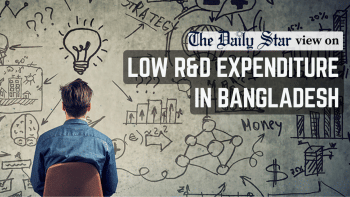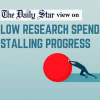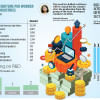The power of collaboration in policymaking

Research and development (R&D) is a fundamental prerequisite for development since it addresses societal economic, social, and environmental challenges. The notion of R&D has changed over time, with development beginning as a subsection of research before becoming an independent category alongside research.
Research, and development are the driving forces behind each country's economic and social progress. All countries share a shared interest in scientific research because they recoginse their role in ensuring the well-being of human civilisation. The level of social development is primarily determined by the implementation of its education and research systems, the educational level of its people, the excellence of research products, and all potential users' equitable access to education and research systems.
Without thorough research, proper development policies are unlikely to be adopted. That is why research and development are inextricably linked, as failure in research can impede progress. Healthcare and education, as well as technology and social policies, all rely heavily on research. It is a method of investigation that seeks to solve issues, extend knowledge, and advance our understanding of the world. This article analyses the value of research in various sectors and how it benefits our society.
First and foremost, research is essential to the healthcare industry. The search for disease treatments and cures depends heavily on medical research. Finding novel medications, treatments, and medical equipment that can enhance patients' quality of life is beneficial. To provide patients with the best care possible, medical practitioners should stay current on the newest developments and methods in their specialties by conducting research.
Secondly, research in education sheds light on how kids learn and how to enhance instruction to promote learning. Additionally, it enables instructors to create brand-new instructional strategies, resources, and tools that help students to reach their greatest potential. Pedagogies such as online education and distance learning have been made possible by educational research.
Research is also necessary for the development of new technologies. The emergence of new goods and services, including computers, cell phones, and the internet, is a result of technological research. It has transformed several other areas, including communication, transportation, and healthcare. New sectors and jobs have emerged from technological research, greatly boosting the economy. Social policy also heavily relies on research. Policymakers can learn more about the needs and problems of society through social research, which helps them decide how best to solve social issues. Evaluating the efficacy of policies and programmes helps to ensure desired results. Policy development in the fields of healthcare, education, social services, and criminal justice has benefited from social research.
Although research has the potential to inform development policy and practice, several interrelated requirements must be met as a prerequisite. Firstly, researchers must aspire to have an impact on policy and practice. They must generate excellent research. Academic incentive and reward schemes should shift their emphasis from publishing and citation counts to fostering research with significant social and economic impacts. Improved dissemination of research findings to broader audiences, such as the general public, civic society, and policymakers, is necessary. Information and communication technologies must be used more skilfully to enhance research communication and enable researchers to participate in knowledge-sharing procedures with other stakeholders. Researchers, practitioners, and policymakers can communicate with one another through formal or informal networks to encourage the application of study findings. To comprehend the demand-side dynamics of the usage of their research in practice and policy circles, researchers must interact with the consumers of their study. To fully utilise the ability to provide evidence in support of policy decisions, policymakers, legislators, and their advisers must develop deeper ties with academic researchers. Effective communication between researchers, practitioners, and policymakers helps to break down the different obstacles separating them.
Monir Hossen is senior research associate at Centre for Advanced Research in Bangladesh.
Views expressed in this article are the author's own.
Follow The Daily Star Opinion on Facebook for the latest opinions, commentaries and analyses by experts and professionals. To contribute your article or letter to The Daily Star Opinion, see our guidelines for submission.

 For all latest news, follow The Daily Star's Google News channel.
For all latest news, follow The Daily Star's Google News channel. 










Comments